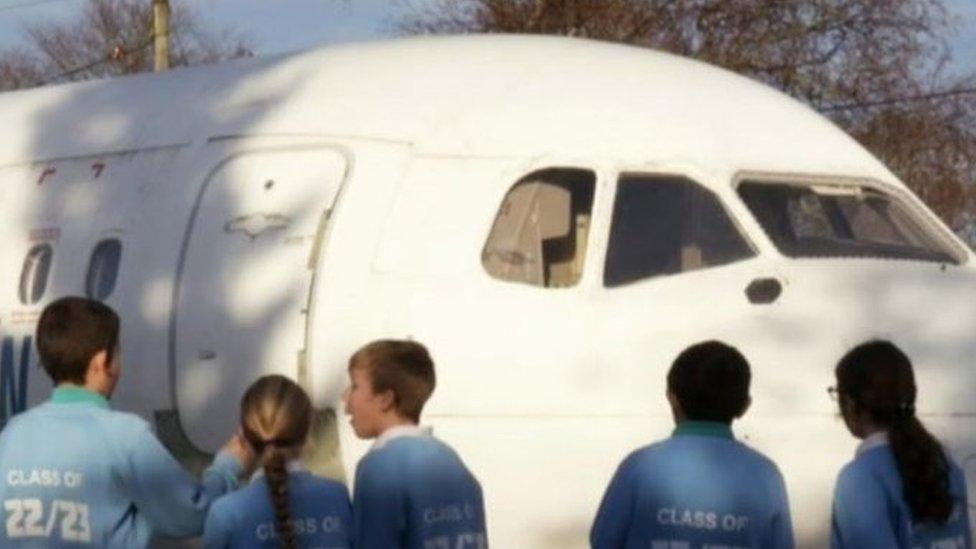The 'Try-before-you-fly' airport scheme helping autistic children
- Published
- comments
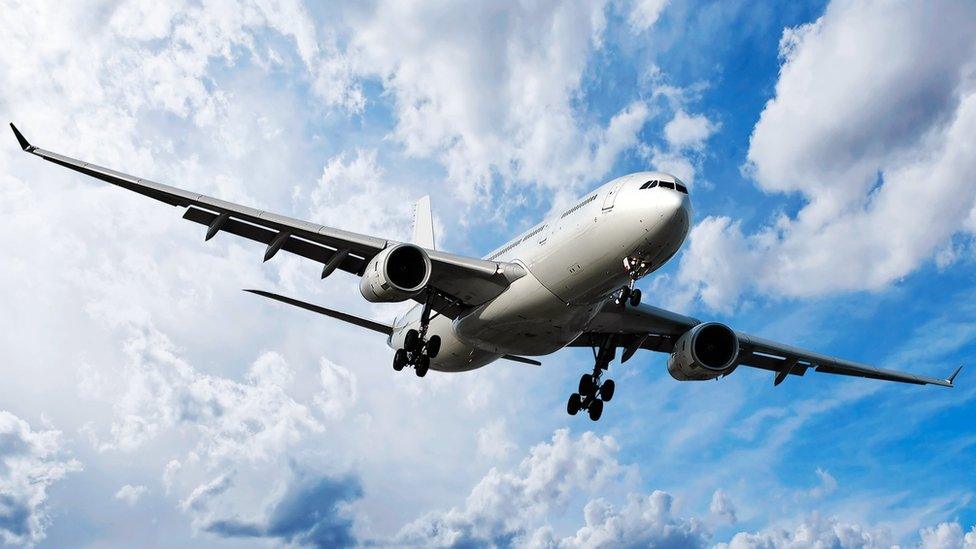
Travelling abroad can be a difficult experience for some children
Some children with autism can find it difficult dealing with large groups of people, and unfamiliar sights and loud sounds.
This can make travelling abroad a struggle for families as airports are very busy environments that can make autistic children feel uncomfortable.
However, free try-before-you-fly events introduced at George Best Belfast City Airport have been helping families with autistic children out.
Autism In The Air, a scheme which is run through Queen's University Belfast (QUB) in Northern Ireland, lets families experience the sights and sounds of a busy airport scenario without any actual flying take place.
At the most recent event, 10 families got to experience busy check-in desks, go through mock airport security, wait at a departure gate and even get to board a grounded plane.
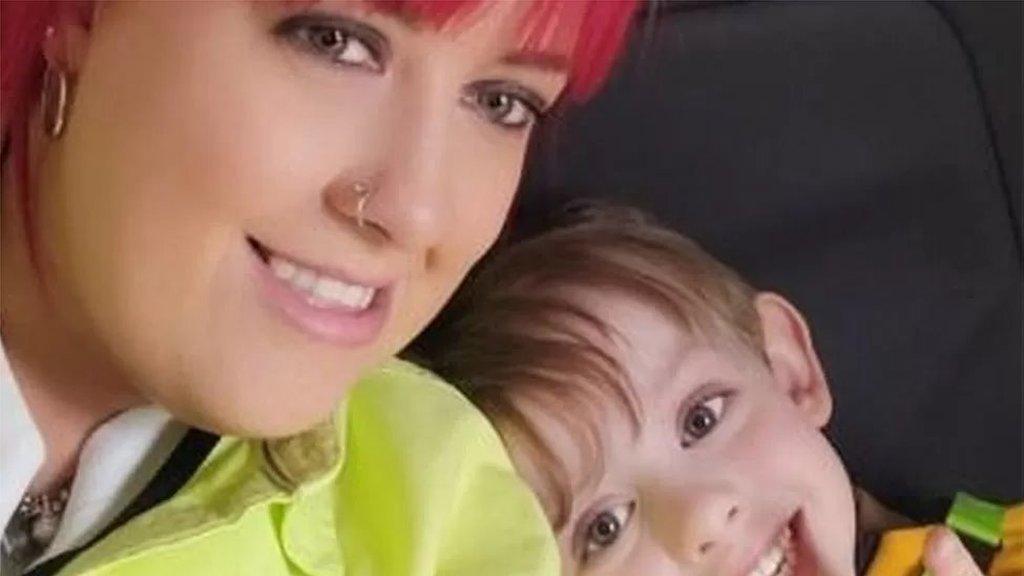
Catherine attended the Autism in The Air event with her son Haydn
Parent Catherine explained how her family had to postpone their holiday two years in a row as they were worried her autistic son Hadyn would struggle with the big crowds, long queues and loud noises at the airport.
"Haydn is hyper sensitive and not good with change, he needs constant routine and uses a visual support board to transition throughout his day," Ms McNerlin told BBC News NI.
Hadyn's mum says the family can now go ahead with their holiday following their recent visit to the airport as part of the Autism In The Air scheme.
Autism spectrum disorder (ASD) - its medical name - is the name for a range of conditions which affect how a person communicates and interacts with the world around them, as well as their interests and behaviour.
People who are born with autism have it all of their lives. Some people prefer to call it 'autism spectrum condition' (ASC) instead of ASD.
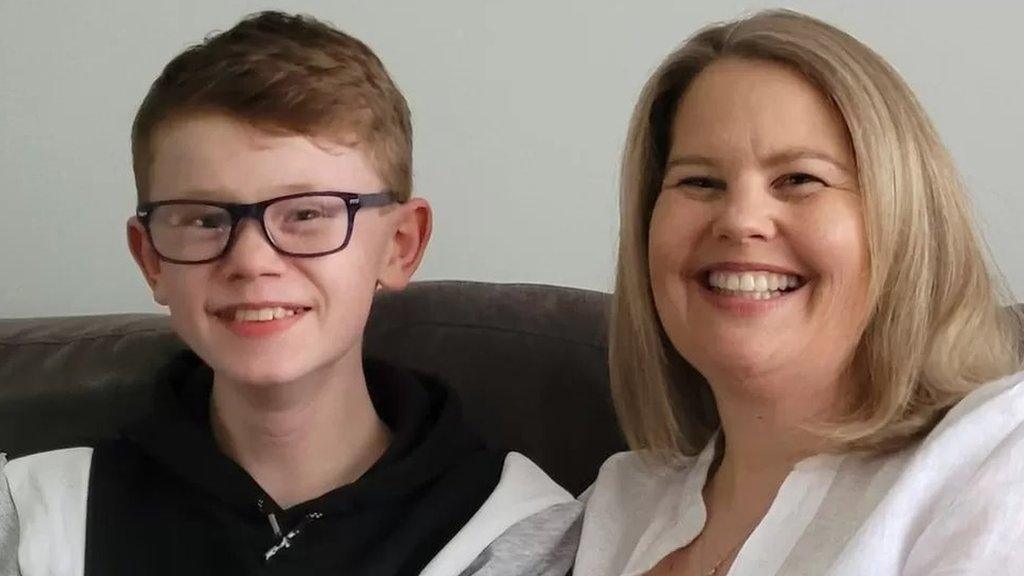
Ethan's mum was worried about him flying without her for the first time
13-year-old Ethan has also benefited from the scheme. He'll be heading off with his friends on a Boys' Brigade (BB) trip to London.
However, his mum Laurie was worried about him flying without her for the first time, although she knew he would be in safe hands.
"The BB leaders are all fantastic with Ethan and one of the leaders going has a brother who is autistic so is great with Ethan as well," she said.
Ethan's mum signed herself and her son up for the Autism In The Air event to allow him to experience what it would be like going through a busy airport.
"Airports are so big and there are just so many people everywhere and I would just be worried about how he would cope sometimes," she said.
"This was just a way to put my mind at ease because I know he wouldn't be used to it," she said.
"...it was a great way for him to see what it was like and I could then flag to his BB leaders about any potential issues that he had on the trial run."
Why are programmes like this important?
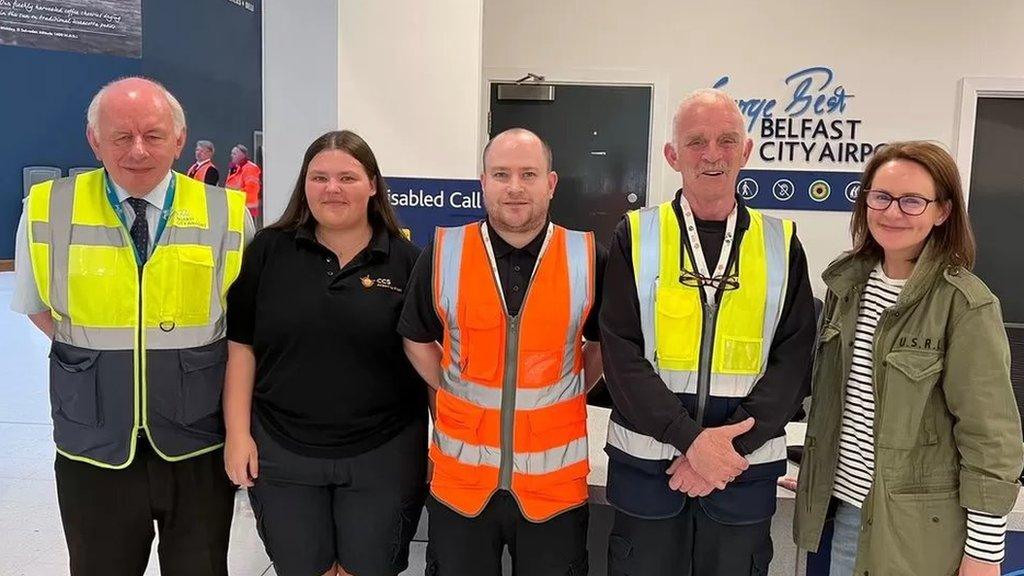
Dr Nichola Booth (pictured far right) with duty manager Bill Doole (far left) and support staff at George Best Belfast City Airport
Dr Nichola Booth, who is a lecturer in behaviour analysis and autism at QUB, says that giving children with autism the opportunity to get familiar with the process of air travel benefits both them and their parents or guardians.
"What we noticed was that a lot of families of autistic children and young people were finding that going on holiday was a distressing experience," she told BBC News NI.
"Some actually avoided going on holiday altogether because of the unknown situation of an airport with all the crowds and the unfamiliar sounds associated with them."
Dr Booth said the scheme could help pinpoint any potential issues the child might experience during their time at the airport or on the plane and parents could then have a plan in place.
"Families really do benefit from this trial experience so that they can be less apprehensive about travelling in the future," Dr Booth said.
- Published26 October 2021

- Published23 March 2020
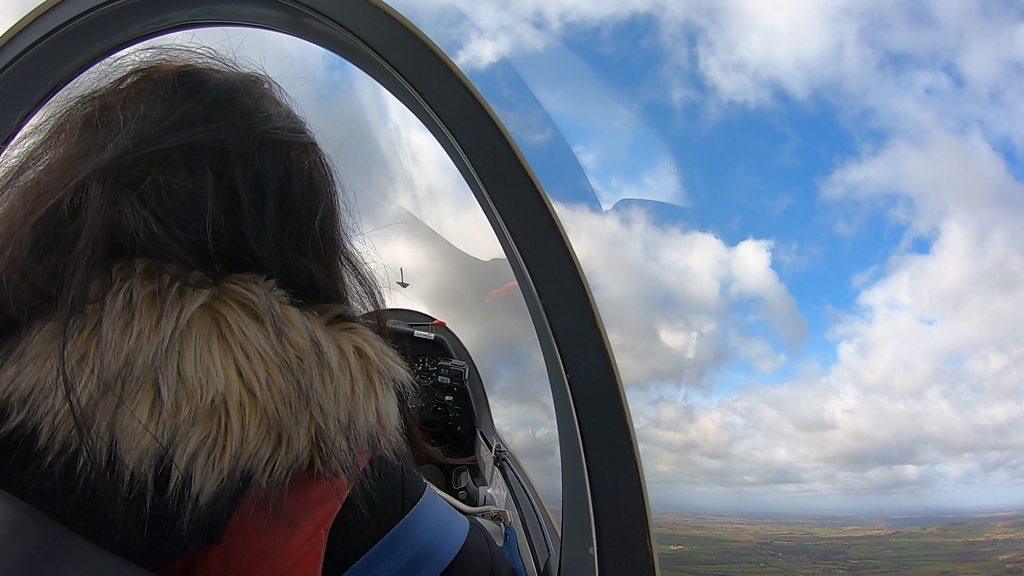
- Published2 February 2023
